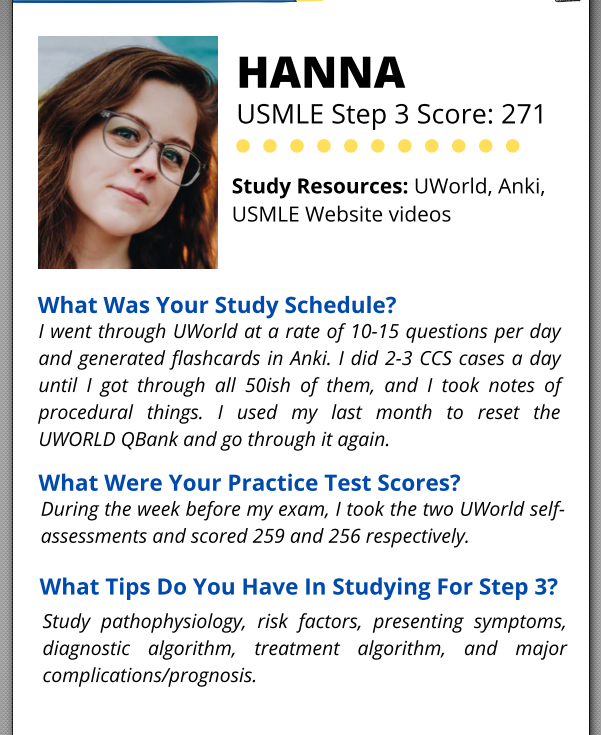Introduction to USMLE Step 3
USMLE Step 3 embodies the ultimate assessment in a physician’s journey towards independent medical practice in the United States. Serving as the culmination of the USMLE series, this examination evaluates a candidate’s readiness and competence to undertake unsupervised patient care, emphasizing clinical decision-making and management skills across various medical scenarios. It spans two days, encompassing a blend of multiple-choice questions that scrutinize foundational and advanced clinical knowledge, computer-based case simulations (CCS) replicating real-world patient encounters, and an assessment of clinical skills. However, amidst the rigors of medical training and the comprehensive nature of Step 3, the objective of simplifying its preparation stands as a guiding principle. This endeavor aims to demystify the complexities of the examination by breaking down its components, streamlining study approaches, recommending essential study materials, and offering strategic insights. The goal is to render Step 3 preparation more accessible, providing candidates with a structured framework to navigate through the examination landscape with confidence, thereby facilitating a smoother transition into independent medical practice.
Understanding the Exam
Understanding the structure and content distribution of the USMLE Step 3 examination is fundamental for effective preparation. The examination spans two intensive days, each with its distinct focus. The first day delves into two primary segments: the Foundations of Independent Practice (FIP) and the Advanced Clinical Medicine (ACM). FIP evaluates foundational knowledge across various settings, assessing a candidate’s ability to manage common clinical scenarios. ACM, on the other hand, raises the bar by presenting higher complexity cases, testing a candidate’s proficiency in intricate clinical situations. Day two presents a different challenge, with a focus on Computer-Based Case Simulations (CCS) and the Patient Care and Communication (PCC) assessment. CCS presents 13 cases that simulate real clinical encounters, requiring candidates to make swift and accurate decisions in diagnosis and management. PCC evaluates interpersonal and communication skills vital for effective doctor-patient interactions. As for content areas, Step 3 covers a wide array of specialties including internal medicine, surgery, pediatrics, OB/GYN, psychiatry, preventive medicine, and biomedical ethics. Understanding the weightage of each content area aids in structuring study efforts, ensuring a balanced and comprehensive approach to mastering the diverse medical disciplines tested in the examination. This breakdown of the two-day format and content areas offers a roadmap for candidates to strategize their preparation effectively, focusing on key areas and allocating study time accordingly.
Simplified Study Approach
A simplified study approach for USMLE Step 3 entails a streamlined and strategic plan tailored to cover major clinical areas comprehensively while emphasizing high-yield topics for efficient preparation. Crafting a study plan involves breaking down the vast medical content into manageable sections, considering internal medicine, surgery, pediatrics, OB/GYN, psychiatry, preventive medicine, and biomedical ethics. Structuring study sessions around these clinical areas ensures a well-rounded understanding of essential medical disciplines. Within each area, focusing on high-yield topics—core concepts, commonly tested areas, and frequently encountered clinical scenarios—optimizes study time and content retention. These topics often form the backbone of Step 3 questions, making them crucial for success. Emphasizing high-yield topics allows candidates to prioritize their study efforts, maximizing efficiency without compromising depth of understanding. This simplified approach empowers candidates to navigate the vast breadth of medical knowledge, concentrating on pivotal areas vital for success in the examination.
Essential Study Materials for USMLE Step 3
Accessing essential study materials is pivotal for a successful USMLE Step 3 preparation journey. A cornerstone of this process involves acquiring recommended review books renowned for their comprehensive coverage of essential medical concepts. Books like USMLE Step 3 First Aid and Master the Boards serve as invaluable resources, offering structured content aligned with examination requirements, aiding in a thorough understanding of key clinical areas. Equally critical are question banks and practice resources such as UWorld, which provide a plethora of practice questions meticulously designed to simulate the exam’s complexity and diversity. These question banks offer a dynamic learning experience, honing problem-solving skills and reinforcing content mastery through exposure to real-world scenarios. Furthermore, harnessing the power of online resources, videos, and lectures amplifies learning opportunities by providing varied perspectives and dynamic visual aids. Online platforms offer a wealth of supplementary information, diverse learning experiences, and convenient accessibility, enhancing understanding and retention of critical medical concepts. By amalgamating these essential study materials, candidates can fortify their knowledge base, refine their problem-solving skills, and foster a comprehensive approach to Step 3 preparation.
Cost of the USMLE Step 3 Exam
The cost of the USMLE Step 3 examination is a consideration for aspiring physicians navigating their licensing journey. As of my last knowledge update in early 2022, the examination fee for Step 3 varied based on factors such as the state or jurisdiction where the exam was administered and whether the candidate was a U.S. medical graduate or an international medical graduate. For U.S. medical graduates, the fee typically ranged between $895 and $1,025, while for international medical graduates, it ranged between $895 and $1,255. However, fees might have changed since then, and additional costs could include fees for scheduling changes or test center location preferences. Candidates are advised to check the most recent fee structure and additional costs directly from the official USMLE website or the respective registration entities for the most accurate and updated information.
Preparation Strategies for USMLE Step 3
Strategic preparation strategies are pivotal for navigating the intensive USMLE Step 3 preparation process. Effective time management stands as a cornerstone, involving the creation of structured study schedules that allocate time judiciously across different content areas. This includes setting achievable goals, breaking down study sessions into manageable blocks, and prioritizing high-yield topics while ensuring a balanced coverage of all clinical areas. Balancing personal commitments and study demands is another critical aspect. Candidates need to harmonize their study schedules with personal responsibilities, incorporating flexibility to accommodate unforeseen events. Strategies like time-blocking, setting realistic study targets, and integrating study into daily routines can aid in maintaining this balance. Moreover, maximizing productivity during study sessions necessitates creating a conducive study environment, minimizing distractions, and employing active learning techniques such as practice questions, concept mapping, and self-testing. Employing these strategic approaches fosters an organized and efficient study regimen, allowing candidates to optimize their study time, manage personal obligations, and enhance productivity during study sessions, thus facilitating a smoother and more effective preparation for the Step 3 examination.
The quest for the best study materials for USMLE Step 3 often leads aspiring physicians to a diverse array of resources tailored to comprehensively prepare them for this pivotal examination. Acclaimed review books like “Master the Boards” by Conrad Fischer and “First Aid for the USMLE Step 3” serve as indispensable guides, condensing essential knowledge across clinical disciplines into comprehensive volumes. Complementing these texts, question banks such as UWorld’s Step 3 Qbank stand out for their exhaustive question database, closely mirroring the exam’s complexity and aiding in refining diagnostic and management skills. Additionally, CCS practice cases, available through resources like the USMLE Step 3 CCS Cases by CCSCases.com, are invaluable for honing decision-making abilities within simulated patient encounters. Online platforms like OnlineMedEd and AMBOSS offer interactive study modules, videos, and high-yield content, enriching learning experiences and fostering a deeper understanding of key clinical concepts. Ultimately, the best study materials for USMLE Step 3 cater to a candidate’s learning style, providing a robust blend of knowledge, practice questions, and simulated clinical scenarios to comprehensively prepare for this rigorous examination.
Clinical Practice and Reasoning
Mastering clinical reasoning is pivotal for success in USMLE Step 3, focusing on honing diagnostic and management strategies across various medical scenarios. Emphasizing diagnostic strategies involves understanding the process of clinical decision-making, including history taking, physical examination, and interpreting diagnostic tests to arrive at accurate diagnoses. Equally essential is mastering management strategies, which encompass formulating treatment plans, considering therapeutic options, and understanding patient care pathways based on evidence-based practices. Real-life application of clinical concepts in practice cases serves as a cornerstone for refining clinical reasoning skills. Engaging with simulated patient scenarios, such as Computer-Based Case Simulations (CCS), allows candidates to apply theoretical knowledge in practical contexts, fostering critical thinking and enhancing problem-solving abilities. By integrating diagnostic and management strategies into real-life clinical scenarios, candidates develop a deeper understanding of patient care, fortifying their clinical reasoning skills essential for excelling in Step 3 and preparing for real-world medical practice.
CSS Practice
Mastering Computer-Based Case Simulations (CCS) is crucial for success in USMLE Step 3, requiring an understanding of its structure and the significance it holds in assessing clinical decision-making abilities. CCS replicates real-life patient encounters, allowing candidates to demonstrate their diagnostic and management skills within a simulated environment. Understanding the structure involves familiarizing oneself with the interface, navigation tools, and the simulated patient dashboard, ensuring ease of maneuvering through cases within the allotted time.
Tips and techniques for efficient decision-making in CCS
Efficient decision-making in CCS hinges on several key techniques and tips. Prioritizing initial interventions, organizing patient care, and addressing urgent issues promptly are essential. Candidates should focus on establishing diagnoses, ordering necessary tests, and initiating appropriate treatments in a timely manner. Utilizing the ‘think, order, do’ approach—where candidates think about the diagnosis, order relevant tests, and execute the treatment plan—ensures a structured and efficient decision-making process. Additionally, time management is critical; allocating time judiciously to each step of the patient encounter optimizes performance within the CCS framework.
Furthermore, practicing a wide variety of cases, simulating different clinical scenarios, and reviewing both correct and incorrect approaches aids in understanding the nuances of decision-making in CCS. By comprehending the structure and significance of CCS and implementing effective decision-making strategies, candidates can navigate through these simulated patient encounters confidently, demonstrating their clinical acumen and enhancing their readiness for real-world patient care.
Exam Anxiety
Tackling exam anxiety is pivotal during USMLE Step 3 preparation and on the actual exam day. Coping mechanisms for managing stress during preparation involve maintaining a healthy work-life balance. Implementing relaxation techniques, such as mindfulness meditation, deep breathing exercises, or engaging in physical activities, can alleviate stress. Breaking study sessions into manageable chunks and incorporating regular breaks helps prevent burnout and maintains focus.
Coping mechanisms for managing stress during preparation.
Additionally, fostering a positive mindset through positive affirmations, visualizing success, and seeking support from peers or mentors can bolster confidence and reduce anxiety. Developing a support network and discussing concerns with colleagues or mentors can offer reassurance and perspective.
Strategies to stay calm and focused on the exam day.
Strategies to stay calm and focused on the exam day involve ensuring adequate rest the night before, adhering to a healthy routine, and arriving early at the exam center to alleviate last-minute stressors. Prioritizing time management during the exam, allocating time for each section, and staying composed when faced with challenging questions are crucial. Employing relaxation techniques, such as taking deep breaths or brief moments of mindfulness, can help regain focus during the exam. Keeping a positive attitude, trusting in one’s preparation, and maintaining composure are essential elements to navigate the exam day successfully. By incorporating these coping mechanisms and strategies, candidates can mitigate exam-related anxiety, fostering a conducive environment for optimal performance during Step 3.
Success Stories and Tips
Sharing success stories and tips from individuals who have triumphed in the USMLE Step 3 journey can provide invaluable insights and guidance for aspiring candidates. Insights from successful candidates often revolve around their study approaches, emphasizing the importance of structured study plans, efficient time management, and prioritizing high-yield topics. They often stress the significance of utilizing multiple resources, such as review books, question banks, and practice exams, to reinforce understanding and boost confidence.
Valuable tips and advice for Step 3 preparation and exam day.
Valuable tips and advice from successful candidates encompass various aspects of Step 3 preparation and the exam day itself. Strategies to enhance preparation might include starting early, maintaining consistency in study habits, and focusing on weaknesses while building on strengths. They may stress the importance of practicing CCS cases extensively, simulating real-world scenarios, and mastering the art of efficient decision-making within the allocated time.
Advice for the exam day often centers on staying calm, managing time wisely, and trusting in one’s preparation. Suggestions to maintain composure, not getting stuck on challenging questions, and utilizing breaks effectively can be invaluable. Moreover, recommendations might include ensuring proper rest, eating well, and arriving at the test center well-prepared with all necessary documents and identification.
Overall, these success stories and tips from individuals who have navigated the Step 3 journey successfully offer inspiration, guidance, and practical advice for candidates, providing them with a roadmap towards effective preparation and success on the exam day.
Conclusion
In conclusion, the journey towards mastering the USMLE Step 3 examination encompasses a multifaceted approach aiming to simplify the intricate preparation process. Key takeaways revolve around structuring study plans, focusing on high-yield topics, utilizing essential study materials, mastering clinical reasoning, navigating Computer-Based Case Simulations, managing stress and anxiety, and imbibing insights from successful candidates. These strategies aim to streamline the extensive medical knowledge required, offering candidates a structured and efficient path to success.
To candidates embarking on their Step 3 journey, remember that this process is not merely an examination but a testament to dedication, resilience, and the culmination of medical education. Embrace the journey with enthusiasm and commitment, trusting in your capabilities and the strategies you’ve adopted. Believe in your preparation, stay motivated, and remain focused on the goal of becoming a competent and compassionate physician. Remember, every step taken towards preparation brings you closer to achieving your aspirations. With diligence, perseverance, and a positive mindset, you’re well-equipped to conquer the USMLE Step 3 and embark on the fulfilling path of practicing medicine with confidence and proficiency. Best of luck on your Step 3 journey!
You may also want to take a look at these articles if you are interested in the USMLE journey. If you have any questions you can comment them down below. Cheers!
From Prep to Pass: The Complete USMLE Step 3 Guide [2023]
USMLE Step 2 CK: The Comprehensive, Detailed, and Slightly Whimsical Guide







